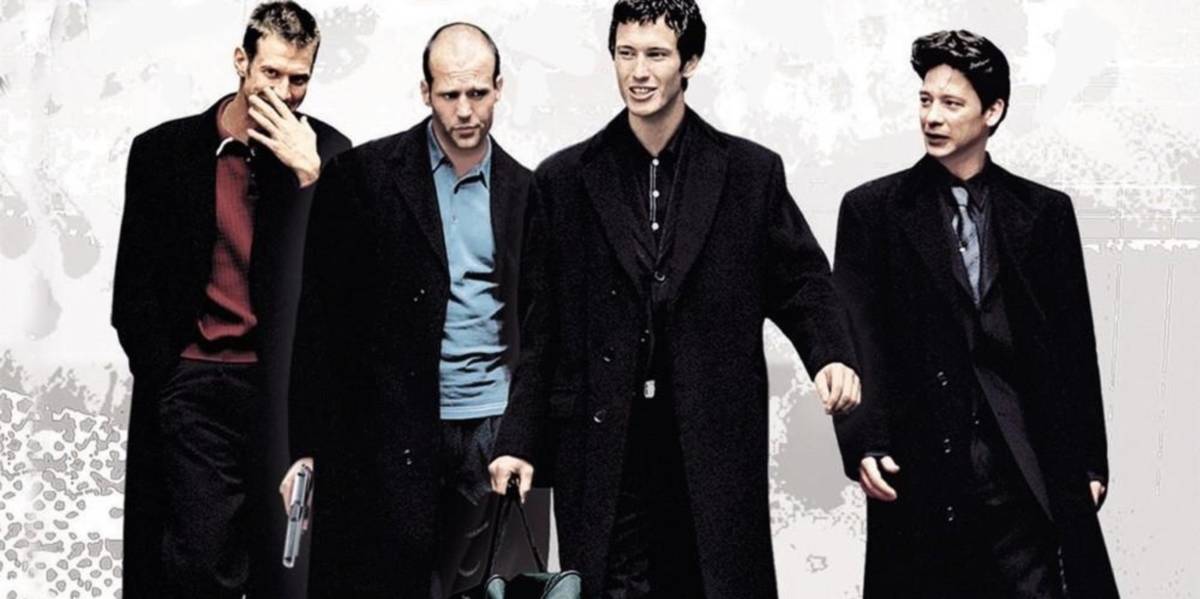I finally saw it recently, but I did not enjoy Lock, Stock and Two Smoking Barrels. Just so you know what you’re in for, I’ll spend much of this review bashing it, and trying to be a little funny too. I’m not trying to condescend anyone with this warning, I just want people to know exactly what they’re about to read before they pour their time into this, as I would expect with a review where someone hates on one of my favorite movies.
Lock, Stock has many things to recommend for it, like the dialogue, and the performances were so good that I almost enjoyed the film. Those are two extremely important things that were done well, but personally, I’m a stickler for plot and story structure. And that’s largely what I’ll focus on. Now that you all know how great and magnanimous I am, here we go.
This film is considered a classic, and it’s won a huge pile of awards over the years, but personally, I find it over-stylized, badly paced, and also pretentious. I get what they saw in this movie, but it’s not what I saw. Maybe style. Maybe creativity. Maybe Adam is fluffing up the word count so he can get paid more. Another thing that I’m going to talk about is the over-appraisal of famous directors’ earlier projects, because that’s what I think has happened here. Anyhow, now that you’ve been warned, let’s talk about Guy Ritchie’s famous student film.

Style
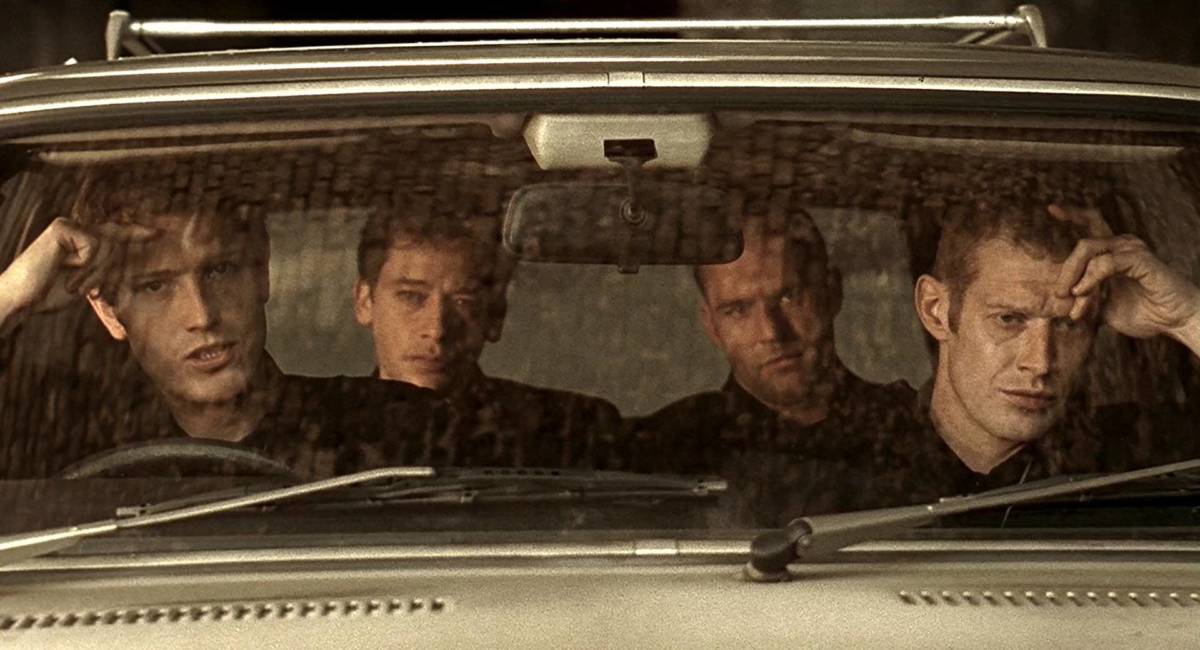
There’s not much to Lock, Stock, and Two Smoking Barrels, but it looks like there is. There’s some kind of brown filter over every single frame that made my eyes tired, just like fluorescent lighting. The lighting is also hard to look at. The movie was intentionally made to look ugly, but that doesn’t change the fact that it looks ugly. Everything else would’ve been sufficient for style, but at least one person felt the need to back it up with muddy visuals. The colors are washed out and blurred together and it’s a stylistic choice that I don’t care for. That’s a very subjective opinion.
There are a number of other stylistic choices that are jarring and which don’t help the film, like the editing and effects when Eddy is leaving the boxing ring, right after he’s buried in debt to Harry. What I’m talking about is a brief sequence of shots where he’s confused and dizzy, and the visuals reflect that. Rock music is also played over it. This is all fine and effective, and I liked it at first, but the sequence goes on for about three times as long as it needs to. We get it, he’s distraught, confused, and shocked, and you got that across when you added blurring effects that hurt my eyes. It was a cool enough technique that Suicide Squad stole it to poor effect in the scene where Joker electrocutes Harley. The boxing ring sequence lingers long after it has made its point, which is the exact opposite of good storytelling. It felt like Ritchie was trying to prove something to me, but that’s not something that anybody wants to see in a movie.
Pacing and Impact
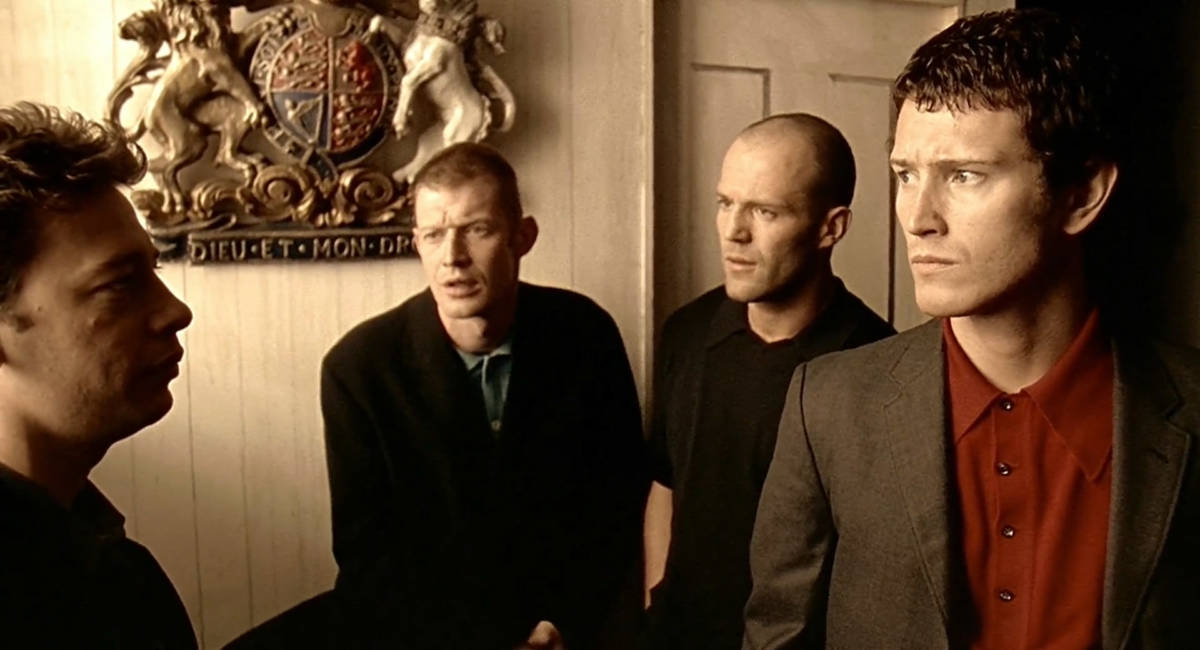
As for the pacing, the second half is a drag to get through. Ironically, almost all of the violence occurs there. The entire film has a general lack of impact that’s made worse by the slow-down in the second half. Nothing feels serious, or like it has stakes.
The sequence where the bad guys rob the pot-grow goes on for some time and contains a great deal of violence, but it literally had me checking my watch. It gets irritating when they reach the second floor, where there’s a neat callback to the stoned woman that no one sees under all the couch cushions. She grabs an unattended Bren gun and hoses the entire room in an awkward, poorly edited series of shots right before the villain punches her in the face. The scene feels awkwardly-paced and the payoff is underwhelming. It’s also worth mentioning that even though they’re firing a light machine gun in the middle of London, the only cop that interferes is a traffic warden, and he’s giving them a parking ticket. Nothing in that scene feels like it’s happening for a reason, and it’s robbed of impact by the editing and the sound effects, which are far too quiet for firearms being used indoors. Ritchie drags out the scene with one ridiculous inconvenience after another, played off as comedy, but I didn’t find it funny. That left me just watching some people scream at each other for a while with poorly-done gunplay.
Whenever something especially violent happens, the film cuts away from it, depriving the viewer of anything that’s hard to look at. That’s the whole point of violence. When you cut away from a man having his toes blown off with a sawn-off shotgun, it defeats the point of blowing his toes off with a sawn-off shotgun. We only know it’s brutal because the characters say it’s brutal. It’s better to utilize the fact that film is a visual medium by showing us brutality. The violence, where it should be grizzly and over-the-top, really relies on all the four-letter words in the dialogue to push Lock, Stock into an R-rating.
Also, here’s a note to filmmakers: when you spend the whole second half of your film building up to an epic shootout between two of the factions, and it happens, and you kill several named characters, it helps to show that as it happens. Don’t just show it afterwards. That’s what was done in Lock, Stock, and the plot point alone isn’t sufficient. The conflict was resolved, drastically affecting the story, but we didn’t get to see the event as it happened. It’s like watching an outline for a film, or worse, a sanitized TV edit. The plot is there, but there’s no impact. It defeats the entire reason for telling the story through a dynamic visual medium. It removed all the tension, like people blocking their eyes when they watch a train wreck. People don’t watch hard-boiled crime movies to be denied tension. They watch them for the exact opposite.
Pretentiousness (i.e. anything I don’t like)
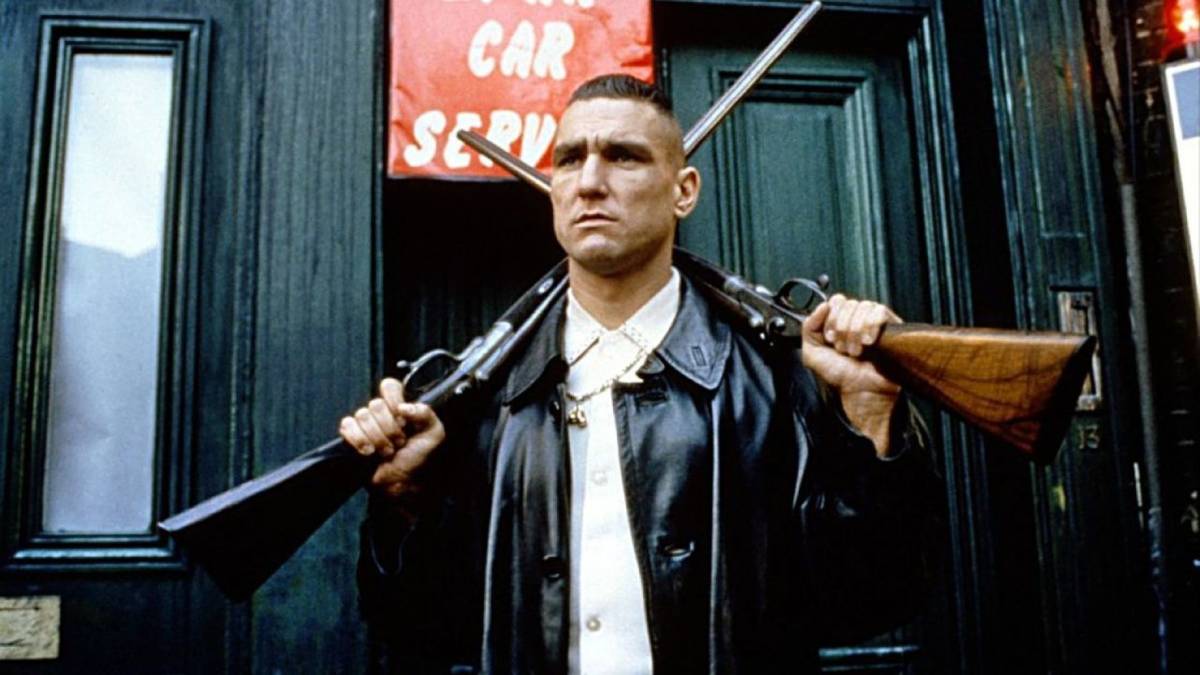
Now for the part where I talk about pretentiousness. This will be the most vitriolic and heavily-opinionated part of my review. The most obnoxious part of this movie for me is the ending. No exaggeration, I hate the ending, and here’s why. There exists a vague agreement between the storyteller and the audience, that when he or she spends the audience’s time, they must spend it well. The storyteller only shows people things that are relevant, useful or entertaining. There are all kinds of good movies full of useless stuff that doesn’t matter, such as Pulp Fiction, but at least the useless stuff is funny or entertaining enough that the audience doesn’t feel cheated. What was the deal with the Gimp, anyways? It could’ve been a generic criminal, but the drawn-out Gimp thing is so shockingly bizarre that it pulls you in.
Lock, Stock, and Two Smoking Barrels has a runtime of about 107 minutes, and they deliberately cut off the ending with a freeze-frame cliffhanger. This is generally seen by critics as a ballsy stylistic choice that required a great deal of creativity to pull off. I’ve never met these people, but I gave the storyteller my time, and he saw fit not to give me what I spent my time on: a resolution to the story he told me. That’s unfair and frustrating, and I see it as a cop-out.
You know what’s easier than having the creative courage to choose an ending for your story and standing by it? Literally not making an ending and passing it off as flair is easier. It’s cheap and it’s unfair to the audience. I dislike it. I hate it actually, because it shows that the storyteller doesn’t care in the slightest that I spent almost two hours of my time trying to appreciate his creation. Storytellers should play games with their audience, not punt the ball straight out of the schoolyard. A story without an ending is not a story at all, it’s an unfinished draft. Breaking such a basic rule as that isn’t subverting a trope, it’s throwing away a vital piece that makes every story airtight enough to actually be a story. Did they film an ending and not like it, then decide to cut it out? At least it would’ve been an ending. Even No Country for Old Men, basically “Blue-Balls: the Movie,” even had a real ending. They left some things up to the audience, but when the credits rolled, the story was actually over. The movie I’m evaluating on the other hand, just fails to satisfy the audience. It doesn’t elicit a reaction by denying the audience the outcomes they want. It elicits a reaction by denying the audience any kind of outcome.
Over-appraisal of Earlier Work
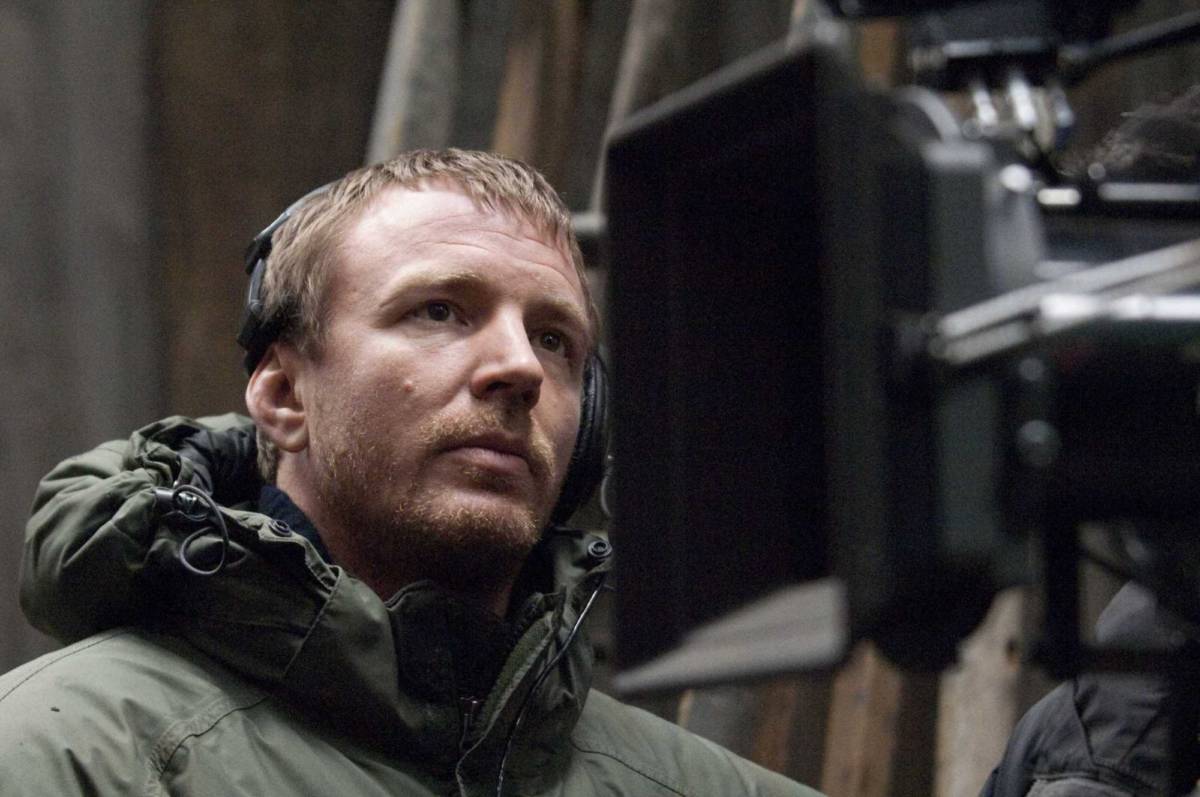
The way we treat the early work of successful directors is counter-productive. There’s a thing with fans and critics where they act like the work that directors did before they were famous is always their best, as if they hit a point where they stop developing as a filmmaker. There needs to be more respect for the growth they see through the rest of their careers.
We need to acknowledge that making movies is as much of a craft as it is an art, and that people typically get better at it as time goes on, and that it’s a career that involves a lot of hard work. Everyone is always a student, Christopher Nolan didn’t just instantly become a master when he made Memento, and he still isn’t. No one is. There’s not some innate talent that made James Gunn some kind of golden goose before he started making Marvel movies. Sure, he made Slither and that Dawn of the Dead remake early on, but he’s also credited as the director of Movie 43. Guy Ritchie has been making movies for decades.
I harshly dislike Lock, Stock and Two Smoking Barrels, but Guy Ritchie made it a long time ago, with a lot less experience than he has now, and that’s fine. I treat it as a movie where he tried a bunch of stuff, and that stuff happened to irritate me. It’s a flawed film, made by an inexperienced director, who tried all kinds of different things to make it stand out from the pack, and that’s the attitude we should all have about it. We shouldn’t worship something that can be thought of as a student film, just because the guy who made it is famous now. People like Guy Ritchie, or Christopher Nolan and Memento for another example, didn’t start out as experienced directors. Memento is probably the most unique movie that Christopher Nolan has made, but his later stuff has fewer plot holes. Memento is a good film because no criticism can change the fact that it’s effective, but it has plot holes that people willfully ignore when they shower praise on it.
Directors learn and improve as their careers go on, and the early projects that they make are usually their least competent work. They started out as amateurs, and they did amateurish work, and that’s actually more uplifting than pretending that they started out perfect. These people started at the same level as everyone else, and there’s nothing stopping any of us from doing the same. That’s a more uplifting way to view directors, so I find it funny that so few people approach it that way. If we view celebrity filmmakers as flawed, human craftsmen who got better through practice, then what’s stopping any of us from rising to that level? I’ll take the optimistic route. That’s something that I don’t usually do.
Lock, Stock and Two Smoking Barrels fails to tell a story that is complete and self-contained. What we get simply isn’t finished, it’s most of a story with a vital piece cut off just to make it appear different from everything else. At that, it succeeds: not having an ending does indeed make your movie different. But so do lots of other bad decisions. Now I’m done venting. What a lazy and conceited way to finish a film.
Some of the coverage you find on Cultured Vultures contains affiliate links, which provide us with small commissions based on purchases made from visiting our site. We cover gaming news, movie reviews, wrestling and much more.


